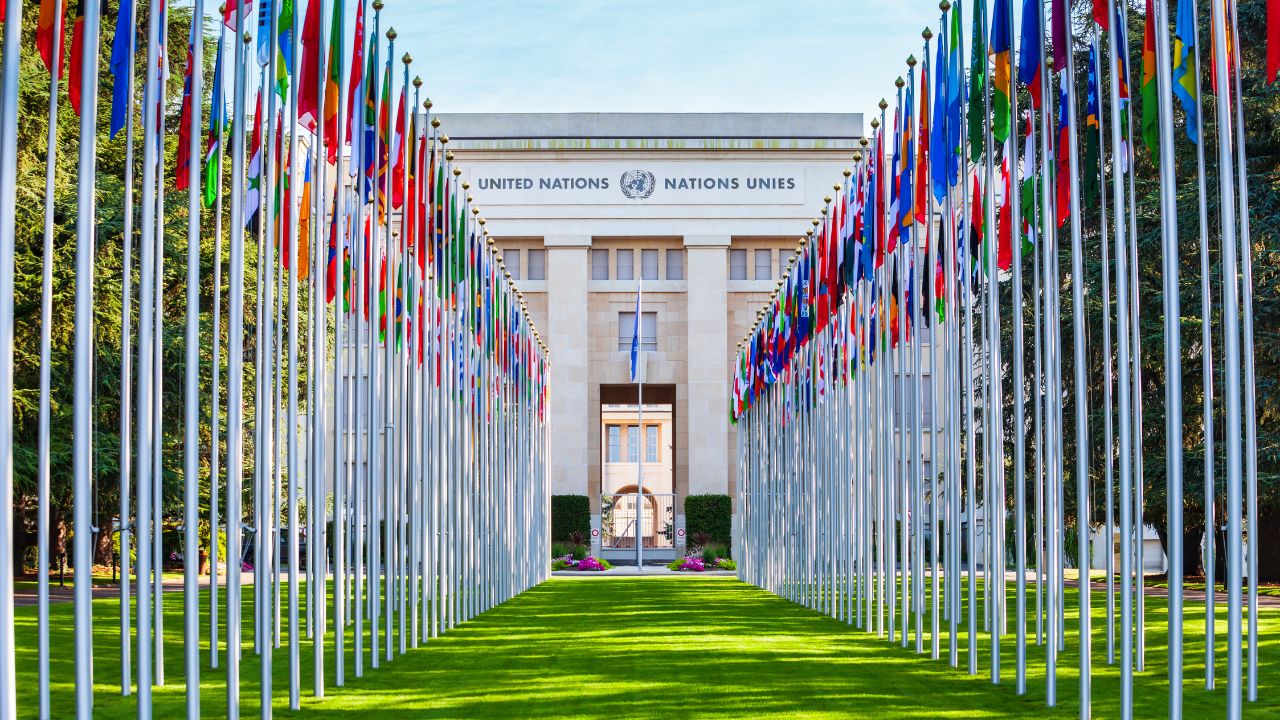- Article Audio
- Introduction
- English as a Global Lingua Franca
- English in International Diplomacy
- Language Learning for Diplomacy
- English in Global Communication
- The Impact on Non-English Speaking Cultures
- Language Learning with Cultural Sensitivity
- Cultural Insights in English Language Learning
- Balancing Global Communication and Linguistic Diversity
- The Future of English in International Diplomacy and Global Communication
- Conclusion
- Keywords & their Definitions:
- Key Takeaways
- You Might Still Be Wondering about…
- How can we promote linguistic diversity while maintaining English as a lingua franca?
- In what ways can digital technology be used to promote cultural sensitivity in English language learning?
- How does the dominance of English in global communication impact the global influence of English-speaking countries?
- What are the possible implications of the rising prominence of other languages, like Mandarin or Spanish, on the role of English in global communication?
- How might the growing importance of cultural intelligence affect international relations and diplomacy?
- How does understanding the socio-political context of English use enhance communication in diplomatic contexts?
- What are the potential benefits and challenges of a multilingual approach in global communication and diplomacy?
- How can language learning programs be designed to foster both English proficiency and multilingual skills?
- What strategies can be employed to prevent the potential disadvantage faced by non-native English speakers in global communication?
- How can we maintain the balance between the need for a common language and the respect for linguistic diversity in international diplomacy?
- Common Misconceptions or Mistakes
- Misconception: Mastery of English language in diplomacy involves only linguistic proficiency.
- Misconception: English is a uniform language with no cultural variations.
- Misconception: The dominance of English in global communication is purely beneficial.
- Misconception: Cultural sensitivity in language learning is not necessary.
- Misconception: English is only the language of the West.
- Article Interactive
- Article Video
Article Audio
Introduction
The global landscape is adorned with a multitude of languages, each with its unique semantic and syntactic structure, phonetics, and cultural imprints. Amidst this linguistic diversity, English has emerged as a lingua franca in various domains, notably in international diplomacy and global communication. Understanding the ascendancy and implications of English in these areas necessitates an exploration from language learning and cultural perspectives.
English as a Global Lingua Franca
Historically, the British Empire’s extensive colonization and the subsequent emergence of the United States as a global superpower have significantly contributed to the rise of English as a global lingua franca. This ascendancy has continued well into the 21st century. Today, it is estimated that around 1.5 billion people worldwide speak English, either as their first, second, or foreign language. The pervasiveness of English is such that it has seeped into various domains, including international diplomacy, business, academia, technology, and entertainment.
English in International Diplomacy
The role of English in international diplomacy cannot be overstated. English has become the principal language of diplomatic discourse, negotiation, and conflict resolution. For instance, the United Nations, an emblem of global diplomacy, uses English as one of its six official languages, but it is often the working language during sessions, conferences, and in the drafting of resolutions. The same pattern can be seen in other international organizations like the World Bank, International Monetary Fund, and World Health Organization.
In diplomatic contexts, English serves as a neutral medium, reducing the likelihood of misinterpretation and fostering a sense of equality among nations. This, in turn, promotes more effective negotiation and conflict resolution. The ability to communicate fluently in English has thus become a critical skill for diplomats, fostering better understanding, facilitating diplomatic discourse, and enabling the smooth functioning of international relations.
Language Learning for Diplomacy
The mastery of English in diplomacy extends beyond mere linguistic proficiency. It includes understanding cultural nuances, idiomatic expressions, and the context in which the language is used. This cultural literacy in English is a byproduct of comprehensive language learning, one that emphasizes not just grammatical rules but also the socio-cultural context of the language.
Effective language learning strategies for diplomats involve immersive learning experiences, such as studying in English-speaking countries, participating in cultural exchange programs, or engaging in intensive language courses that incorporate real-world diplomatic scenarios. This approach helps to foster not only linguistic competence but also intercultural competence, a critical skill in diplomacy.
English in Global Communication
In the realm of global communication, English plays a similarly pivotal role. With the advent of the internet and the digital revolution, English has become the de facto language of the online world. It is the predominant language of websites, social media platforms, and digital communication tools. This digital pervasiveness of English has further cemented its role as a key language in global communication.
Moreover, English is the primary language of academia and research. Most scientific research is published in English, making it the language of innovation, discovery, and global intellectual discourse. Similarly, in global business communication, English is often the default language, facilitating transactions and negotiations across borders.
The Impact on Non-English Speaking Cultures
While the dominance of English facilitates global communication and diplomacy, it also presents challenges, particularly for non-English speaking cultures. The need to communicate in English can put non-native speakers at a disadvantage, potentially leading to miscommunication or misunderstanding. Additionally, the global focus on English may inadvertently undermine the value and importance of other languages and cultures, contributing to linguistic and cultural homogenization. It is essential, therefore, to approach English language learning with cultural sensitivity.
Language Learning with Cultural Sensitivity
Cultural sensitivity in language learning entails recognizing and appreciating the diversity of cultures that exist within the English language itself. English, though seemingly uniform, is a tapestry of dialects and accents, each with its unique cultural nuances. An American English speaker, for instance, may use language differently than a British or Australian English speaker, both in terms of vocabulary and connotation.
Thus, effective English language learning should not only focus on acquiring proficiency but also on understanding these cultural distinctions. This approach fosters cultural intelligence, a vital skill in international diplomacy and global communication, where misunderstanding can have far-reaching consequences.
Cultural Insights in English Language Learning
In addition to cultural sensitivity, cultural insights can be invaluable in English language learning. For instance, understanding the socio-political context in which English is used can enhance comprehension and effective communication. This includes awareness of geopolitical power dynamics, historical events, and socio-cultural norms and values of English-speaking cultures.
Cultural insights can also extend to non-verbal communication, which often varies across cultures. Understanding the norms of eye contact, physical touch, personal space, and body language in English-speaking cultures can complement verbal communication skills, particularly in diplomatic contexts where non-verbal cues can significantly impact communication outcomes.
Balancing Global Communication and Linguistic Diversity
The dominance of English in international diplomacy and global communication has undeniably brought numerous benefits, including streamlined communication, increased mutual understanding, and facilitated cooperation across borders. However, it’s crucial to balance these benefits with the preservation and promotion of linguistic diversity.
Linguistic diversity is a cornerstone of cultural diversity, fostering a more inclusive and equitable global society. This necessitates a multilingual approach to global communication and diplomacy, one that values and respects all languages while recognizing the practical benefits of a shared language.
The Future of English in International Diplomacy and Global Communication
Looking ahead, the role of English in international diplomacy and global communication is likely to remain significant, driven by factors such as globalization, digitization, and the ongoing influence of English-speaking nations. However, the dynamics may evolve as other languages gain prominence on the global stage, and the demand for multilingualism in diplomacy and global communication continues to grow.
In this evolving landscape, the most effective approach to language learning may be one that combines English proficiency with multilingual skills and intercultural competence. Such an approach would equip learners to navigate the complexities of international diplomacy and global communication, fostering better understanding, cooperation, and peace in our increasingly interconnected world.
Conclusion
The role of English in international diplomacy and global communication is a testament to the power of language in shaping our world. From diplomatic negotiations to online discourse, English serves as a bridge across cultures, facilitating communication and understanding. As we navigate the complexities of the global stage, comprehensive language learning, imbued with cultural insights, is an invaluable tool, one that can promote not only effective communication but also a more inclusive, diverse, and peaceful global society.
Keywords & their Definitions:
- Lingua Franca: A language that is adopted as a common language between speakers whose native languages are different.
- International Diplomacy: The practice of conducting negotiations between representatives of different nations.
- Cultural Literacy: The ability to understand and appreciate the similarities and differences in the customs, values, and beliefs of one’s own culture and the cultures of others.
- Intercultural Competence: The ability to communicate effectively and appropriately with people of other cultures.
- Digital Pervasive: Widespread presence, in this context, it refers to the extensive use of English language in digital mediums.
- Cultural Homogenization: The process whereby local cultures are transformed or absorbed by a dominant outside culture.
- Cultural Sensitivity: Being aware of and understanding cultural differences and similarities between people without assigning them a value – positive or negative, better or worse, right or wrong.
- Cultural Intelligence: The capability to relate and work effectively in culturally diverse situations.
- Linguistic Diversity: The existence of a wide range of languages in a specific region or among a particular group of people.
- Multilingualism: The use of two or more languages, either by an individual speaker or by a community of speakers.
Key Takeaways
- English is a global lingua franca, significantly used in international diplomacy and global communication.
- The use of English in diplomacy promotes effective negotiation and conflict resolution.
- Language learning for diplomats goes beyond linguistic proficiency to include understanding cultural nuances and the context of language use.
- English is the primary language of the digital world, academia, research, and global business communication.
- The dominance of English presents challenges for non-English speaking cultures and could contribute to cultural homogenization.
- Cultural sensitivity and cultural insights are critical for effective language learning and communication.
- While recognizing the practical benefits of a shared language, it is important to balance this with the preservation and promotion of linguistic diversity.
You Might Still Be Wondering about…
How can we promote linguistic diversity while maintaining English as a lingua franca?
Promoting linguistic diversity can be achieved by encouraging the learning and usage of multiple languages in addition to English. Education systems can incorporate language programs that expose students to various languages from an early age. Furthermore, international organizations can continue using English as a working language but also emphasize and encourage the use of other languages in their proceedings.
In what ways can digital technology be used to promote cultural sensitivity in English language learning?
Digital technology can play a crucial role in promoting cultural sensitivity in language learning through multimedia resources that showcase diverse cultures, simulations that place learners in culturally diverse scenarios, and collaborative online platforms that allow learners to interact with people from different cultures. Furthermore, technology can support adaptive learning, tailoring content to learners’ cultural contexts to enhance understanding and sensitivity.
How does the dominance of English in global communication impact the global influence of English-speaking countries?
The dominance of English in global communication tends to amplify the cultural and political influence of English-speaking countries. It means that ideas, values, and perspectives expressed in English have a broader reach, shaping global discourse to a significant extent. However, this influence is complex and multifaceted, with other factors such as economic power and political alliances also playing a role.
What are the possible implications of the rising prominence of other languages, like Mandarin or Spanish, on the role of English in global communication?
The rising prominence of other languages may lead to a more multilingual global communication landscape. It could challenge the dominance of English, leading to a world where multiple languages are used in different contexts or regions. This could enrich global communication but also introduce complexity, requiring greater multilingualism and intercultural competence.
How might the growing importance of cultural intelligence affect international relations and diplomacy?
As international relations become more interconnected and complex, cultural intelligence is increasingly important. Understanding and appreciating cultural nuances can promote more effective communication, foster mutual respect, and facilitate negotiation and conflict resolution. Thus, cultural intelligence could contribute to more productive diplomacy and stronger international relations.
How does understanding the socio-political context of English use enhance communication in diplomatic contexts?
Understanding the socio-political context of English use can provide insights into the values, attitudes, and perspectives that shape communication. This can help diplomats to interpret messages more accurately, understand the underlying motivations and intentions, and communicate their own messages more effectively. It can also help to avoid cultural misunderstandings that could lead to conflict or tension.
What are the potential benefits and challenges of a multilingual approach in global communication and diplomacy?
A multilingual approach can enhance understanding, respect, and collaboration between nations by acknowledging and valuing linguistic diversity. However, it can also introduce complexity and potential for miscommunication, require significant resources for language learning and translation, and potentially disadvantage those who are not proficient in multiple languages.
How can language learning programs be designed to foster both English proficiency and multilingual skills?
Language learning programs can incorporate a balanced approach that includes English alongside other languages. This could involve teaching English as a second language while also offering courses in other languages, or integrating content from various languages into the curriculum. Additionally, teaching methods could emphasize the similarities and differences between languages to enhance understanding and transferable skills.
What strategies can be employed to prevent the potential disadvantage faced by non-native English speakers in global communication?
Strategies could include providing language support for non-native speakers, such as translation services and language learning resources, promoting a culture of patience and understanding in communication, and encouraging native English speakers to adapt their language use to be more inclusive and accessible. Furthermore, policies and practices can promote linguistic diversity and respect for all languages.
How can we maintain the balance between the need for a common language and the respect for linguistic diversity in international diplomacy?
This balance can be maintained by using English as a common working language while also acknowledging, respecting, and encouraging the use of other languages. International organizations can ensure that all languages are represented and valued, provide translation and interpretation services, and promote multilingualism among their staff. They can also foster a culture of respect for linguistic diversity and an understanding of the importance of language in representing and preserving cultural identities.
Common Misconceptions or Mistakes
Misconception: Mastery of English language in diplomacy involves only linguistic proficiency.
Reality: It extends beyond linguistic proficiency to include understanding cultural nuances and the context of language use.
Misconception: English is a uniform language with no cultural variations.
Reality: English is a tapestry of dialects and accents, each with its unique cultural nuances.
Misconception: The dominance of English in global communication is purely beneficial.
Reality: It presents challenges, particularly for non-English speaking cultures, potentially leading to cultural homogenization.
Misconception: Cultural sensitivity in language learning is not necessary.
Reality: Cultural sensitivity is crucial for effective language learning and communication.
Misconception: English is only the language of the West.
Reality: English is a global language, used in many countries around the world as a first, second, or foreign language.












0 Comments